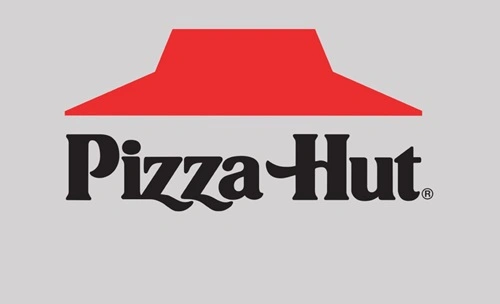Pizza Hut, one of the world’s most recognized pizza chains, has carved a significant niche in the Indian quick-service restaurant (QSR) market. With its global reputation for quality pizzas, pastas, and sides, coupled with a focus on creating family-friendly dining experiences, Pizza Hut is a desirable franchise opportunity for aspiring entrepreneurs.
If you’re looking to own a Pizza Hut franchise in India, it’s essential to understand the costs, requirements, and potential profitability. This article provides a comprehensive guide to the investment, franchise process, and the factors that make Pizza Hut a strong contender in the Indian food business.
Why Choose a Pizza Hut Franchise in India?

- Global Brand Recognition: Pizza Hut is a household name worldwide, which gives franchisees instant customer trust and loyalty.
- Broad Menu Appeal: Beyond pizza, the menu includes pastas, desserts, beverages, and appetizers, catering to a wide customer base.
- Support System: Franchisees benefit from Pizza Hut’s proven business model, training programs, and supply chain efficiency.
- Market Growth: India’s QSR sector is booming, with growing demand for both dine-in and delivery options.
Types of Pizza Hut Franchises
Pizza Hut offers different types of franchise models to cater to diverse markets and customer preferences:
- Dine-In Restaurants: Full-service outlets offering a complete dining experience.
- Delivery and Takeaway Outlets: Focused on fulfilling online orders and takeout services.
- Express Outlets: Compact outlets in high-traffic locations such as malls, airports, or food courts, offering quick service.
Cost of Pizza Hut Franchise in India
The total investment required for a Pizza Hut franchise varies depending on the outlet type, location, and size. Here’s a breakdown:
Initial Investment
- Franchise Fee: A one-time franchise fee of approximately ₹20-30 lakhs is required to secure the rights to operate a Pizza Hut outlet.
- Setup Costs: Setting up the outlet involves costs for interiors, kitchen equipment, furniture, and technology systems. This typically ranges between ₹1 crore and ₹1.5 crores.
- Real Estate Costs: Leasing or purchasing prime commercial property is one of the largest expenses. Monthly rent for a high-footfall location can range from ₹1 lakh to ₹5 lakhs, depending on the city and locality.
- Licenses and Permits: Securing food and beverage licenses, fire safety approvals, and municipal permits can cost an additional ₹5-10 lakhs.
Recurring Costs
- Royalty Fee: Pizza Hut charges a royalty fee of around 6-8% of monthly gross sales.
- Advertising Contribution: Franchisees must contribute approximately 4-5% of gross sales toward national and regional marketing campaigns.
- Operational Costs: These include salaries, utilities, raw materials, and maintenance, typically amounting to ₹5-10 lakhs per month.
Eligibility Criteria for a Pizza Hut Franchise
Pizza Hut has specific requirements for franchise applicants to ensure their success:
- Financial Capability: A net worth of at least ₹3-5 crores and liquid assets of ₹1-2 crores are required.
- Real Estate Knowledge: The ability to secure a prime commercial location in a high-footfall area is crucial.
- Business Experience: While experience in the food and beverage sector is preferred, strong managerial and operational skills are also considered.
- Commitment to Standards: Franchisees must adhere to Pizza Hut’s strict quality and operational guidelines to maintain brand consistency.
How to Apply for a Pizza Hut Franchise in India
- Submit an Application: Visit Yum! Brands’ official website (Pizza Hut’s parent company) or the Pizza Hut India franchise page to fill out an inquiry form.
- Initial Screening: Your application will be reviewed to assess financial stability, business background, and location preferences.
- Interview Process: Shortlisted candidates will be invited for interviews to evaluate their understanding of the business and alignment with Pizza Hut’s values.
- Franchise Agreement: Once approved, you will sign a franchise agreement detailing the terms and conditions.
- Training and Outlet Setup: Pizza Hut provides comprehensive training programs and support for setting up the outlet and ensuring smooth operations.
Profitability of a Pizza Hut Franchise in India
Owning a Pizza Hut franchise can be a profitable venture due to its established customer base and proven business model. Here’s what you can expect:
- Revenue: A well-located Pizza Hut outlet can generate monthly revenues ranging from ₹15 lakhs to ₹50 lakhs, depending on the type and location.
- Profit Margins: After accounting for expenses, profit margins typically range between 10-20%.
- Breakeven Period: Most Pizza Hut franchises achieve breakeven within 3-5 years.
Challenges of Operating a Pizza Hut Franchise
- High Initial Investment: The upfront costs can be a barrier for some potential franchisees.
- Competition: The Indian QSR market is highly competitive, with brands like Domino’s, KFC, and local pizza chains vying for market share.
- Operational Demands: Maintaining consistent quality, meeting delivery timelines, and managing staff require significant effort and dedication.
- Location Dependency: The success of a franchise is heavily influenced by its location and accessibility.
Key Benefits of Owning a Pizza Hut Franchise
- Brand Equity: Pizza Hut’s reputation ensures a steady stream of customers.
- Comprehensive Support: Franchisees receive extensive training, marketing assistance, and operational guidance.
- Menu Innovation: Regularly updated menus and seasonal promotions keep customers engaged.
- Digital Integration: Pizza Hut’s advanced online ordering system and delivery network ensure convenience for customers and operational efficiency.
Conclusion
Investing in a Pizza Hut franchise in India is a lucrative opportunity for entrepreneurs with the financial resources and commitment to operate a globally recognized QSR brand. With its established market presence, strong support system, and customer loyalty, Pizza Hut offers a promising pathway to success in the competitive food and beverage industry.
However, it’s crucial to conduct thorough research, evaluate the investment and operational demands, and align your goals with the brand’s values before taking the plunge. With the right strategy, a Pizza Hut franchise can be a profitable and rewarding business in India’s growing QSR landscape.
Anantha Nageswaran is the chief editor and writer at TheBusinessBlaze.com. He specialises in business, finance, insurance, loan investment topics. With a strong background in business-finance and a passion for demystifying complex concepts, Anantha brings a unique perspective to his writing.


